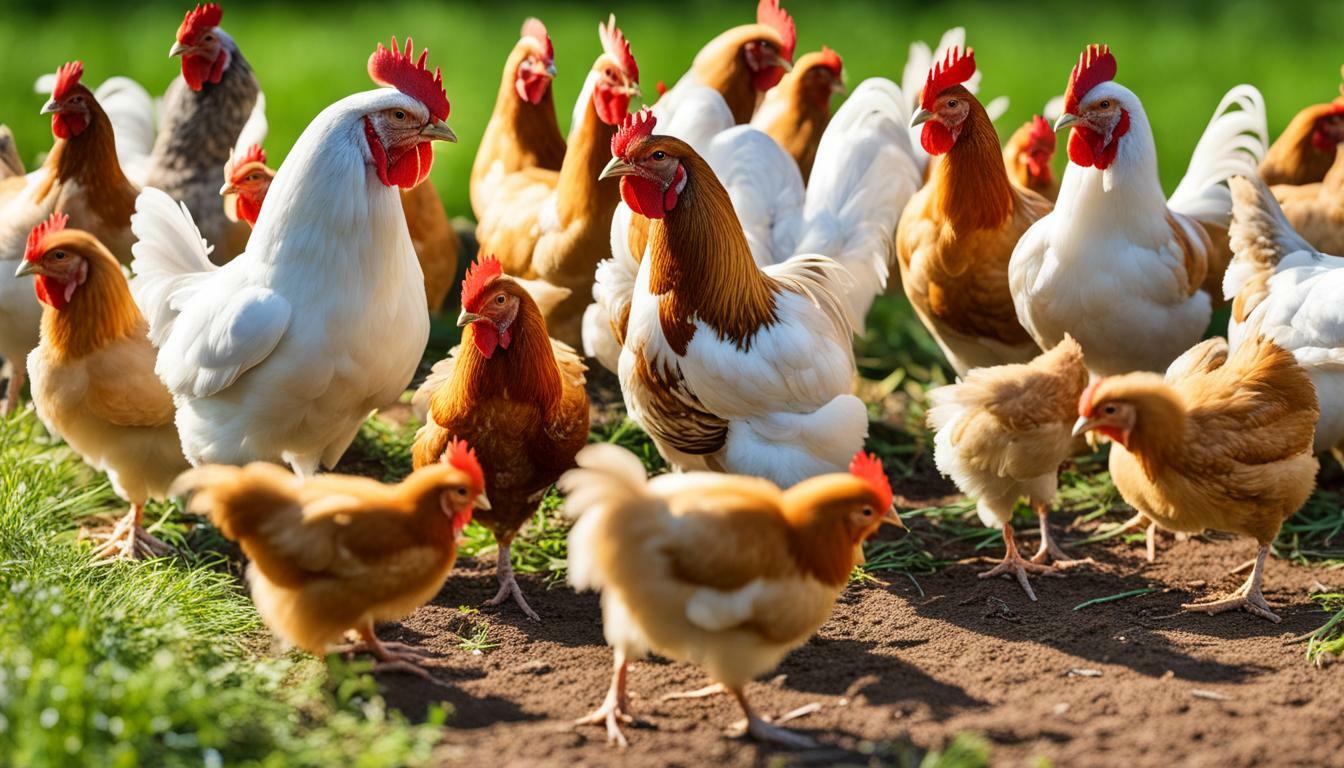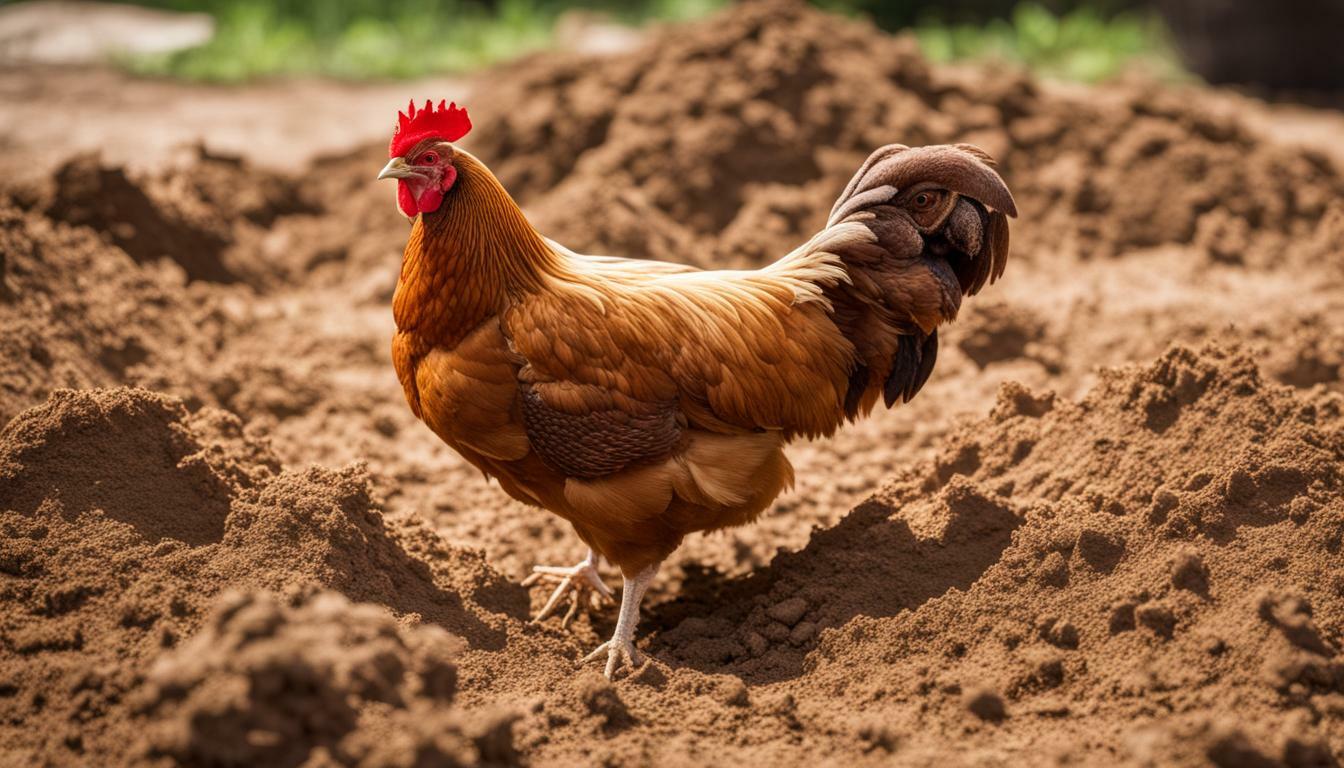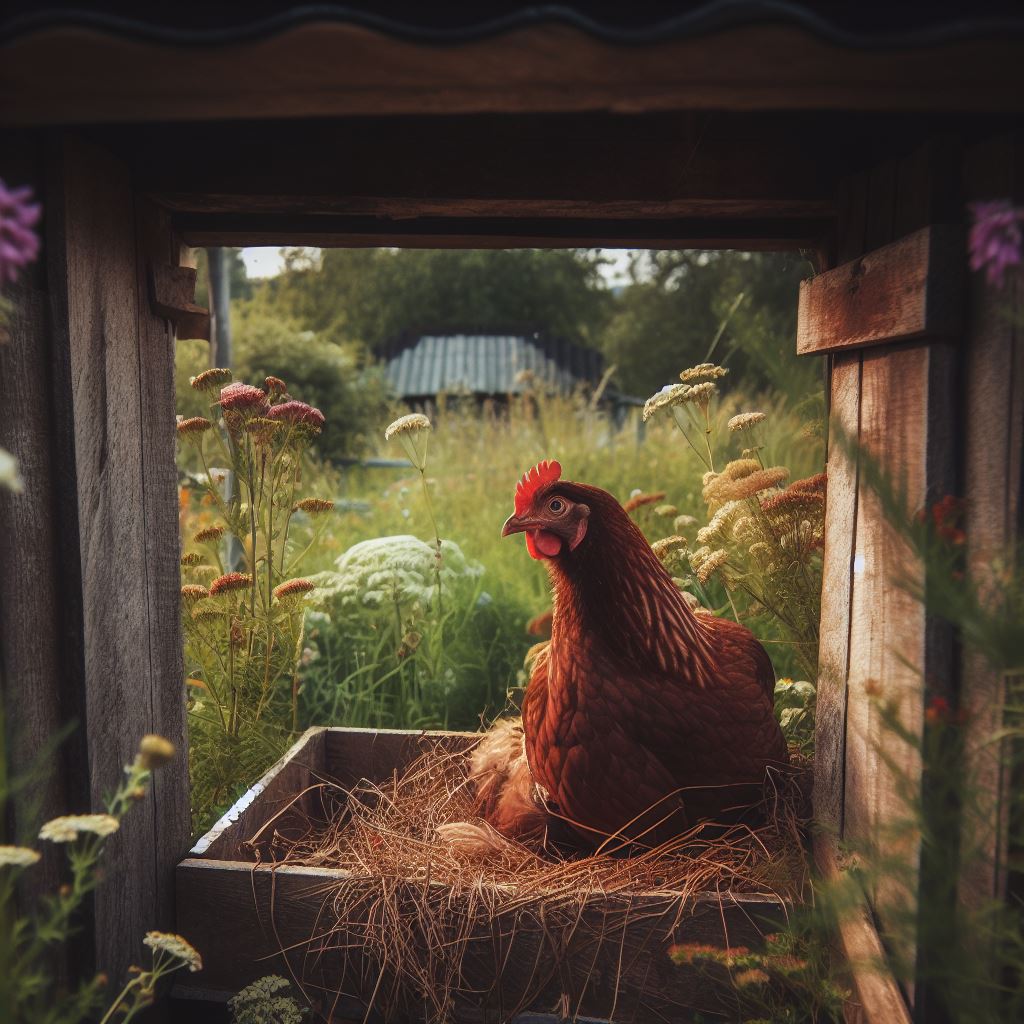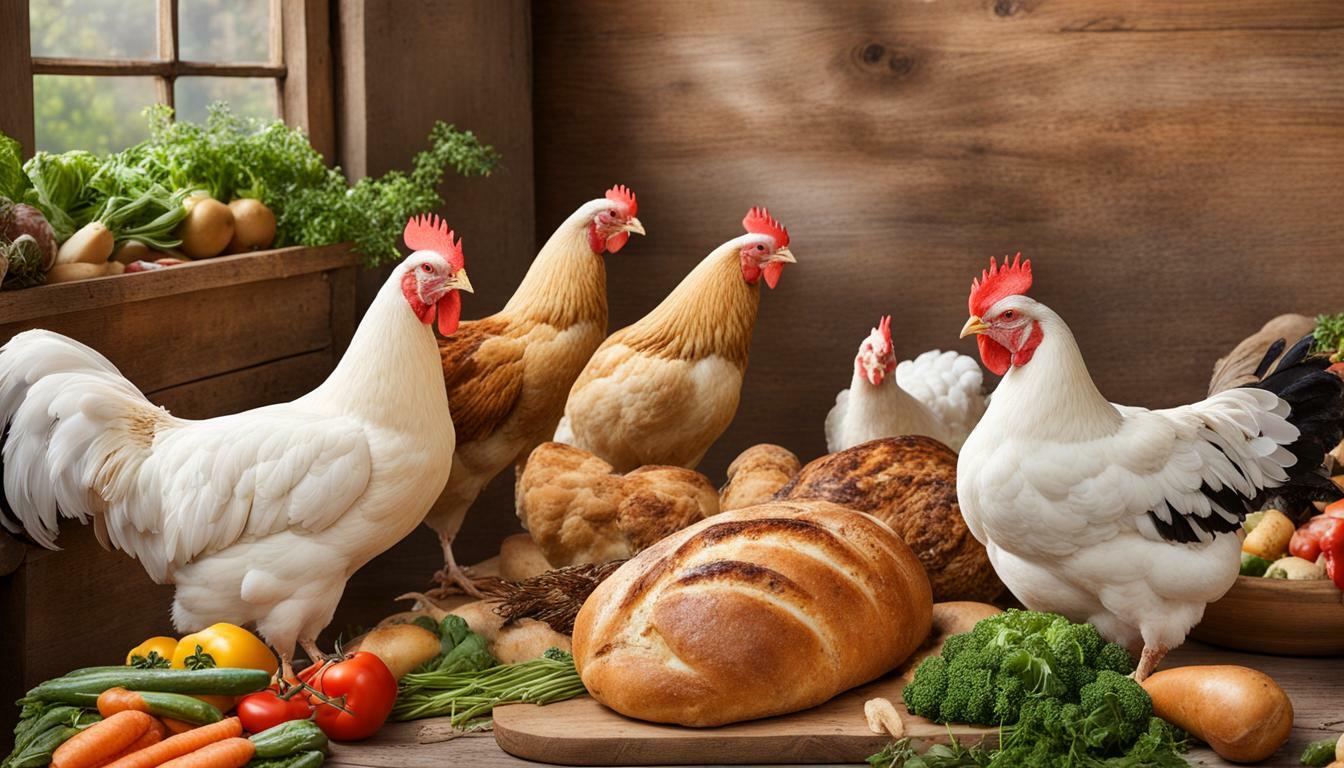Can Chickens Eat Mealworms? Nutritious Treats for Flock!

Table of content:
- Are Mealworms Good for Chickens?
- Mealworm Nutrition for Chickens
- How Much and How Often Can Chickens Eat Mealworms?
- Health Benefits of Mealworms for Chickens
- Potential Risks of Too Many Mealworms for Chickens
- Tips for Feeding Mealworms to Chickens
- Can Chickens Eat Mealworm Pupa and Beetles?
- Best Practices for Feeding Mealworms to Chickens
- Can chickens eat dried mealworms?
- Are mealworms a treat or supplement for chickens?
- Do chickens like eating mealworms?
- What do chickens eat besides mealworms?
- How many mealworms can a chicken eat per day?
- How often should you feed chickens mealworms?
- Do mealworms provide protein for chickens?
- Can you feed chickens too many mealworms?
- Do you need to gut load mealworms for chickens?
- FAQs About Feeding Mealworms to Chickens
- Final Thoughts
Chickens can definitely eat mealworms! Mealworms are an excellent source of protein, fat, and other key nutrients for chickens. When fed in moderation, mealworms make a nutritious supplemental treat or snack for any backyard flock.
Are Mealworms Good for Chickens?
Mealworms contain a whopping 18 grams of protein per 100 grams. That’s even higher than chicken feed! They are loaded with essential amino acids that promote growth and boost egg production in chickens.
Mealworms also provide vital vitamins and minerals like vitamin B12, zinc, and calcium that are important for chicken health and development. Their fatty acid profile helps enrich eggs with healthy fats.
So yes, nutritionally speaking, mealworms are fantastic for chickens! They make an excellent addition to a balanced diet.
Mealworm Nutrition for Chickens
Here’s a closer look at why mealworms are so good for chickens:
Protein
Mealworms contain a whopping 18 grams of protein per 100 grams. This is even higher than the protein levels in commercial chicken feed, which usually ranges from 16-18%.
The protein in mealworms contains all the essential amino acids chickens need. Amino acids help chickens maintain muscle mass and optimize egg production.
Healthy Fats
About 13% of mealworms’ calories come from fat. This fat content helps regulate hormones and provides fatty acids.
The fats in mealworms contain beneficial unsaturated fatty acids like oleic acid. This can enrich egg yolks with omega-3 and omega-6 fatty acids.
Fiber
Mealworms provide insoluble fiber which promotes gut health and good digestion in chickens. The fiber provides a substrate for healthy gut flora to thrive.
Vitamins and Minerals
Mealworms contain sizable amounts of zinc, selenium, and vitamin B12. Vitamin B12 is essential for metabolism and egg development.
They also provide some calcium, phosphorus, magnesium, and iron. Their calcium and phosphorus levels help create strong eggshells.
How Much and How Often Can Chickens Eat Mealworms?
Mealworms are great for chickens but must be fed in moderation. Here are some best practices:
- Limit mealworm treats to 1-2 times per week maximum
- Feed individual hens no more than 1-2 tablespoons or 10-15 worms per day
- Adjust quantities based on your chickens’ age, health, and other dietary factors
- Provide mealworms in a limited amount that will be fully consumed in one feeding session
- Monitor for signs of diarrhea, lack of appetite, or lethargy, reducing quantities if observed
- Offer mealworms as just one component of a varied diet including pellets, grains, treats, and fresh forage
Always supervise your flock during mealworm feeding and remove any leftover worms within an hour to prevent spoilage.
Health Benefits of Mealworms for Chickens
When fed properly, supplementing chickens’ diets with mealworms provides many benefits:
Increased Protein for Growth and Egg Production
The abundant protein in mealworms promotes growth, muscle development, and egg production in chickens. The amino acid profile is perfect for layer hens.
Gut Health
Mealworms’ chitin provides an insoluble fiber that encourages digestion and optimizes gut bacteria. Some research indicates mealworms may boost immunity as well.
Enriched Eggs
The healthy fats like oleic acid and omega fatty acids in mealworms transfer to eggs, enriching the yolks. This makes for more nutritious eggs.
Strong Bones and Eggshells
The calcium and phosphorus in mealworms contributes to bone health and the development of thicker, stronger eggshells.
Foraging and Environmental Enrichment
Chickens love chasing down live mealworms! This provides crucial enrichment and satisfies foraging behaviors. Keeping chickens active prevents boredom and stress while bonding your flock.
Potential Risks of Too Many Mealworms for Chickens
While mealworms can be part of a healthy diet for chickens, feeding too many may pose risks including:
- Digestive upset: Too much fat and protein can cause diarrhea or loose droppings
- Intestinal blockages: Mealworms contain chitin, an indigestible fiber that can clog chickens’ gizzards when overfed
- Nutritional imbalances: Over-reliance on a single feed item can lead to imbalances in calcium, phosphorus, vitamins, etc.
- Obesity: Mealworms are quite fattening so unlimited access may lead to obesity and related issues
- Reduced foraging: Chickens may ignore healthier forage options if they fill up on too many mealworms
- Food boredom: Chickens enjoy variety! An excess of any single treat could lead to boredom and stress
That’s why it’s key to feed mealworms in moderation as part of a varied diet. Consult your veterinarian if you have any concerns about potential negative impacts.
Tips for Feeding Mealworms to Chickens
Follow these tips to safely incorporate mealworms into your flock’s diet:
- Start slow with small amounts to observe effects
- Feed mealworms as treats rather than daily rations
- Gut load mealworms on nutritious feed for 24 hours before feeding
- Provide 1-2 tablespoons or 10-15 worms per chicken maximum
- Mix mealworms into feed or serve free choice in a separate dish
- Supervise feeding to ensure equitable sharing within the flock
- Remove any uneaten mealworms within an hour after feeding
- Store mealworms in the refrigerator to prevent spoilage and escape
- Adjust quantities based on chickens’ age, breed, health status, diet, and productivity
- Increase calcium supplements if feeding mealworms frequently
- Watch for signs of digestive upset or decreased appetite
- Provide plenty of fresh water to aid digestion
Can Chickens Eat Mealworm Pupa and Beetles?
Chickens can eat all life stages of mealworms, including:
- Larvae: The worm-like larvae are the most commonly fed stage. Rinse in water before feeding.
- Pupa: The dormant pupa are higher in calcium and fat. Feed in moderation.
- Beetles: Adult mealworm beetles have crunchy exoskeletons. Limit amounts to prevent impactions.
Avoid feeding eggs, as they may carry diseases. Chickens enjoy the variety of different life stages. Mix up their worm snacks!
Best Practices for Feeding Mealworms to Chickens
Follow these best practices when feeding mealworms:
- Store mealworms in the refrigerator in a ventilated container with oats or bran. Feed immediately or gut load before feeding.
- Rinse before feeding to remove residue. Pat dry to prevent chilling the chickens.
- Gut load for at least 24 hours on chicken feed, leafy greens, veggies, or grains.
- Chop larger mealworms for smaller breeds or young chicks.
- Create a game by scattering small amounts in chickens’ bedding to encourage natural foraging behaviors.
- Mix into feed for shy or lower-ranked hens who may not forage as actively.
- Supervise to prevent choking hazards or bullying.
- Remove leftovers within an hour to prevent spoilage.
- Avoid overfeeding – follow recommended treat amounts based on chickens’ age and size.
Can chickens eat dried mealworms?
Yes, chickens can eat both live and dried mealworms. Dried mealworms have a longer shelf life but may be less palatable than live. Rehydrate dried mealworms in water before feeding.
Are mealworms a treat or supplement for chickens?
Mealworms are best fed as an occasional treat or supplement no more than 1-2 times per week. They are quite rich, so too much can cause digestive upset.
Do chickens like eating mealworms?
Chickens go absolutely nuts for mealworms! Most hens will excitedly peck and scratch for these tasty, protein-packed bugs. It’s an excellent way to enrich their environment.
What do chickens eat besides mealworms?
Chickens are omnivores and enjoy a diverse diet. Good options beyond mealworms include pellets, grains, greens, seeds, fruits, veggies, grit, and other insects.
How many mealworms can a chicken eat per day?
Feed chickens no more than 1-2 tablespoons of mealworms per bird per day. Around 10-15 average-sized mealworms is sufficient as a supplemental treat. Too many may cause digestive issues.
How often should you feed chickens mealworms?
1-2 times per week is ideal. Feed them as an occasional treat, not a daily diet staple. Monitor your flock’s health and adjust as needed.
Do mealworms provide protein for chickens?
Absolutely! Mealworms contain 18 grams of protein per 100 grams, providing chickens with high-quality, bioavailable protein. This supports growth and egg production.
Can you feed chickens too many mealworms?
Yes, feeding too many mealworms can lead to potential health issues like diarrhea, intestinal blockages, malnutrition, and more. Moderation is key when feeding this protein-dense treat.
Do you need to gut load mealworms for chickens?
Gut loading your mealworms before feeding maximizes nutrition. Feed mealworms a nutritious diet for at least 24 hours before feeding to chickens. Great gut load foods include produce, leafy greens, carrots, and high-quality chicken feed.
FAQs About Feeding Mealworms to Chickens
Here are answers to some other common questions about feeding mealworms to chickens:
Can chickens eat mealworms from pet stores?
Yes, as long as they are fresh. Refrigerate unopened containers. Rinse store-bought mealworms before feeding to remove residue. Avoid feeding chickens wild-harvested mealworms.
Do you need to dry mealworms before feeding to chickens?
Fresh, canned, or dried mealworms are all fine for chickens as long as they are not spoiled. Some chickens prefer the texture of rehydrated dried mealworms.
Can chick eat mealworms?
Yes, but limit amounts. Chicks under 4 weeks old do best with smaller-sized mealworms finely chopped. Wait to introduce treats like mealworms until chicks are fully feathered.
Can broiler chickens eat mealworms?
Yes, broilers can eat mealworms in moderation. Take care not to overfeed, as broilers are prone to leg and heart issues if they become overweight.
What about organic, non-GMO mealworm options for chickens?
There is no evidence GMO mealworms impact chicken health. But certified organic options are available if you prefer to avoid GMOs. Rinse well to remove residue regardless of the source.
How long is it safe to feed mealworms to chickens?
Mealworms can be a healthy supplemental feed for chickens long-term if fed properly in moderation. Follow recommended amounts and monitor chickens’ health.
Final Thoughts
When fed as an occasional treat in limited amounts, mealworms are a fantastic supplemental feed for backyard chickens. Chickens relish these wiggly, protein-packed snacks. Mealworms provide healthy nutrients that promote growth, egg production, and enriched yolks.
Just be sure not to overdo it! Too many mealworms may cause digestive upset and obesity. Follow suggested feeding guidelines, gut load when possible, and monitor your flock’s health when offering this tasty treat. Along with a balanced main diet and adequate foraging time, mealworms can be part of a diverse nutritional regimen supporting your chickens’ wellbeing.
Welcome. I’m Adreena Shanum, the proud owner of this website, and I am incredibly passionate about animals, especially poultry. I founded adreenapets.com as a labor of love, stemming from my desire to share my knowledge and experiences with poultry enthusiasts worldwide.




